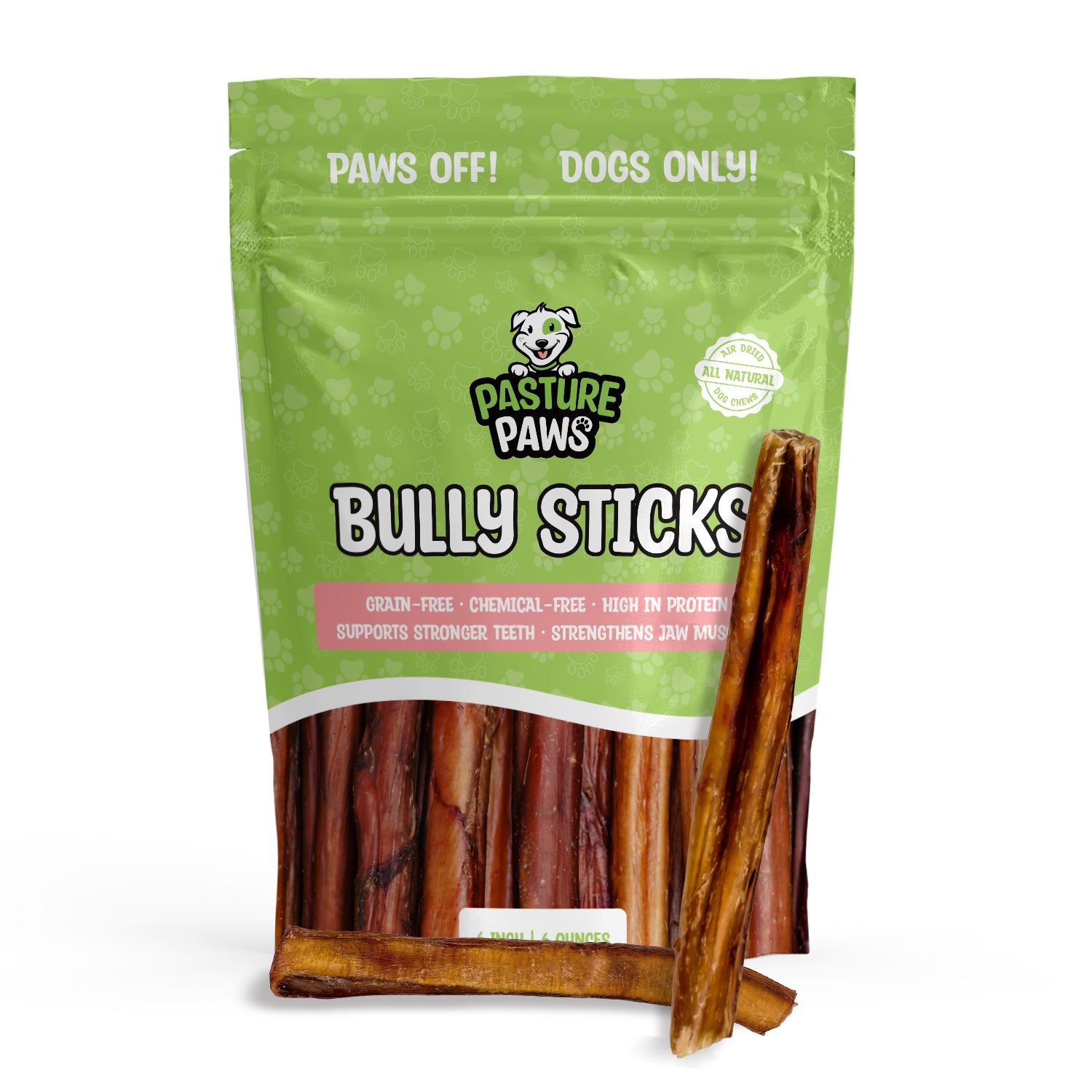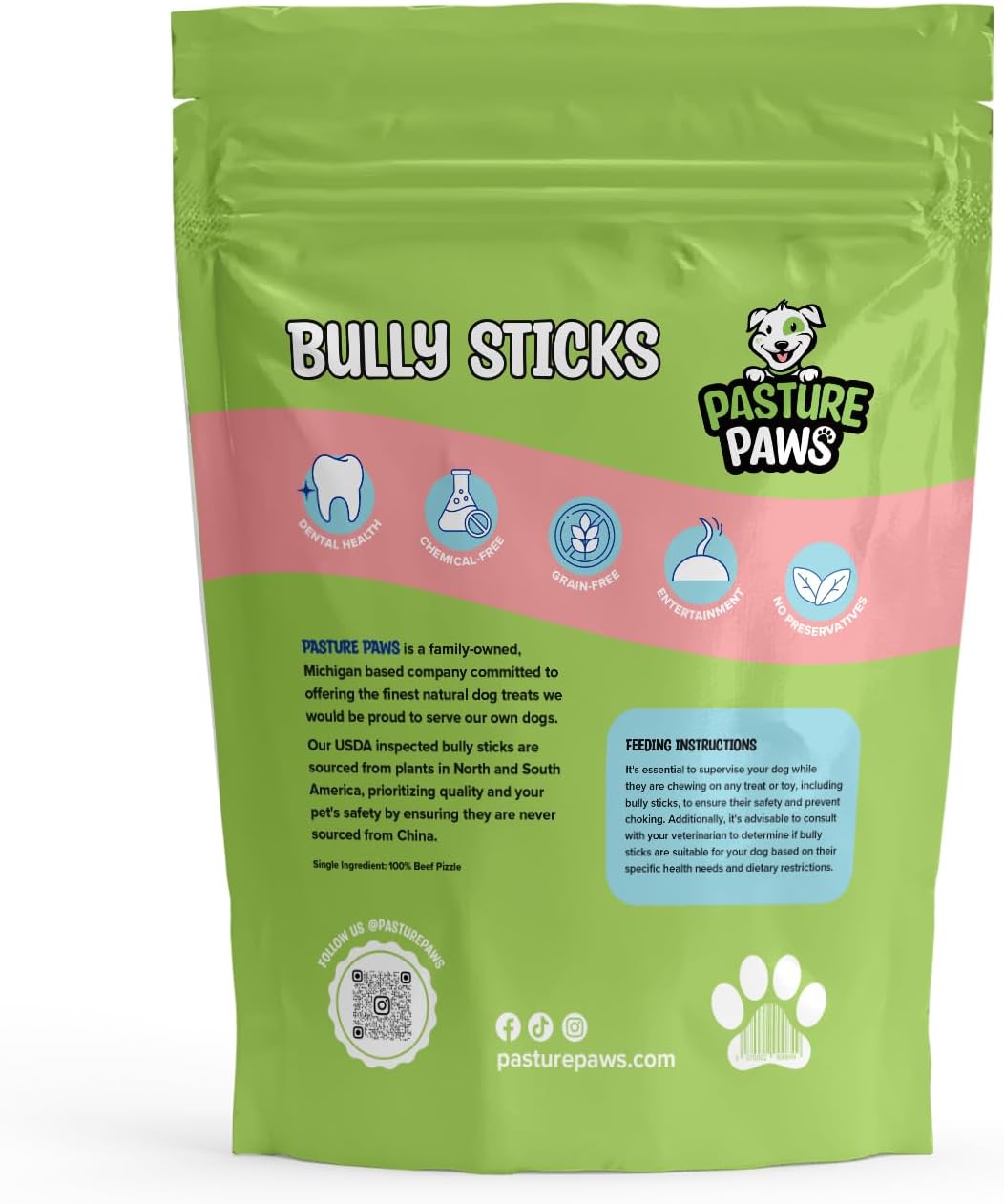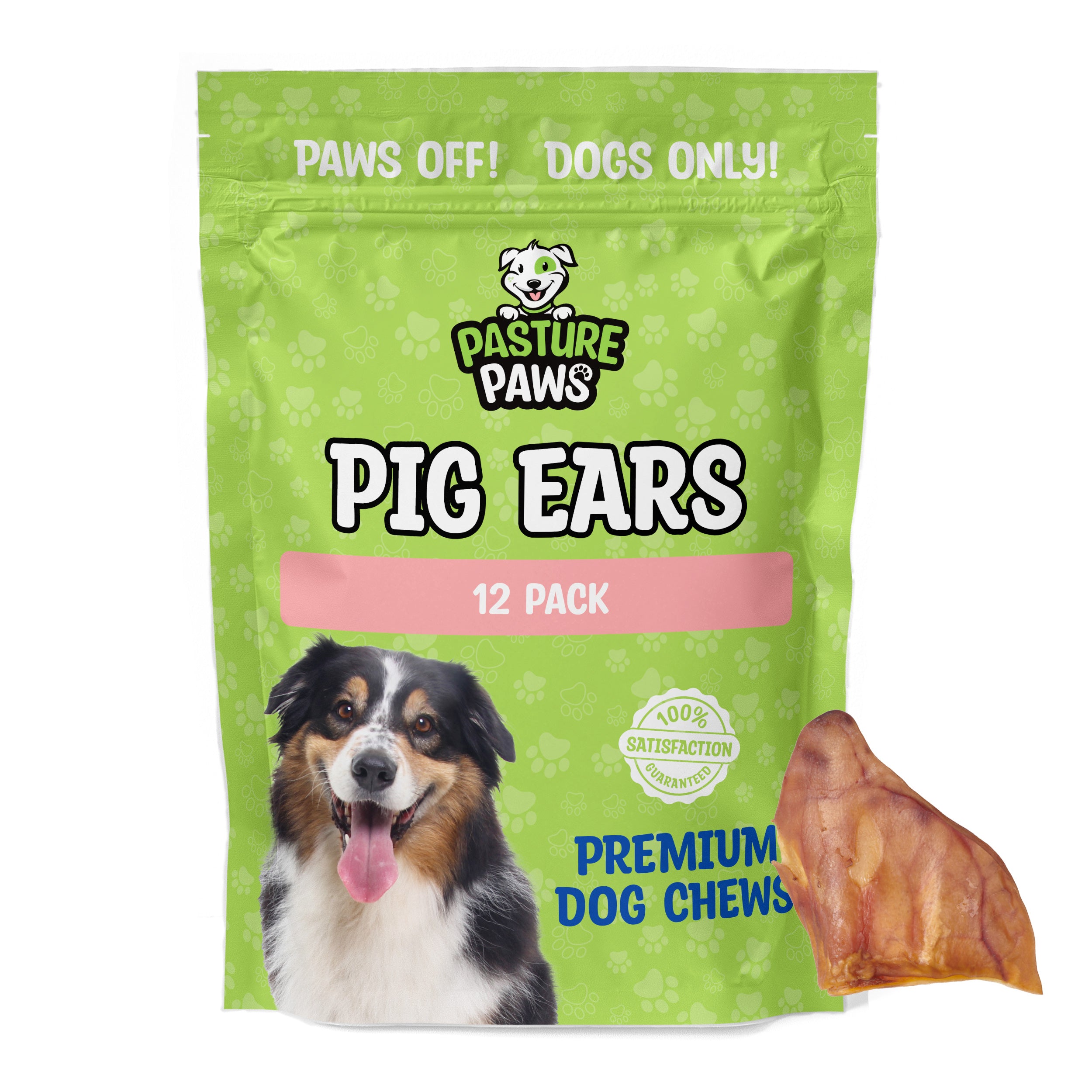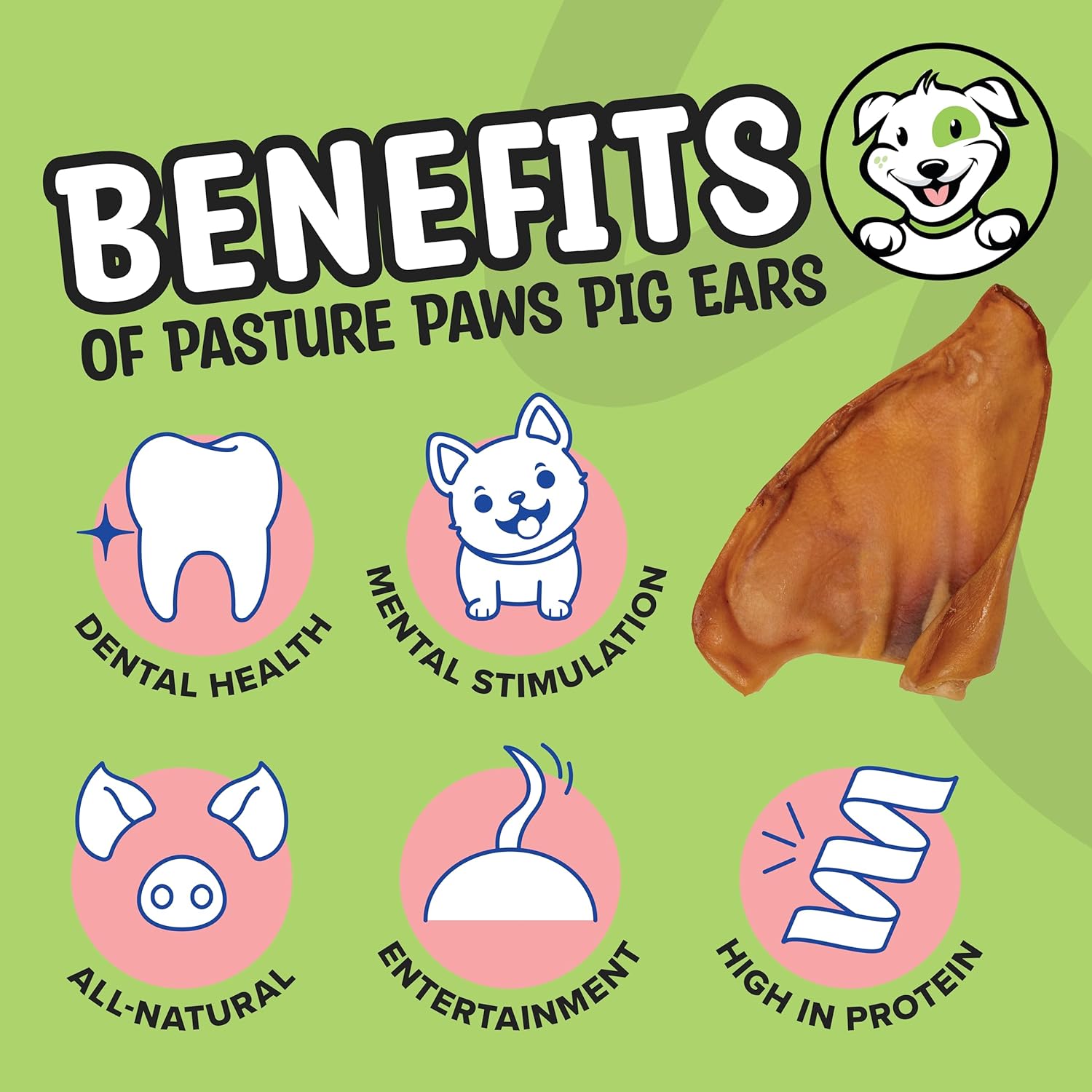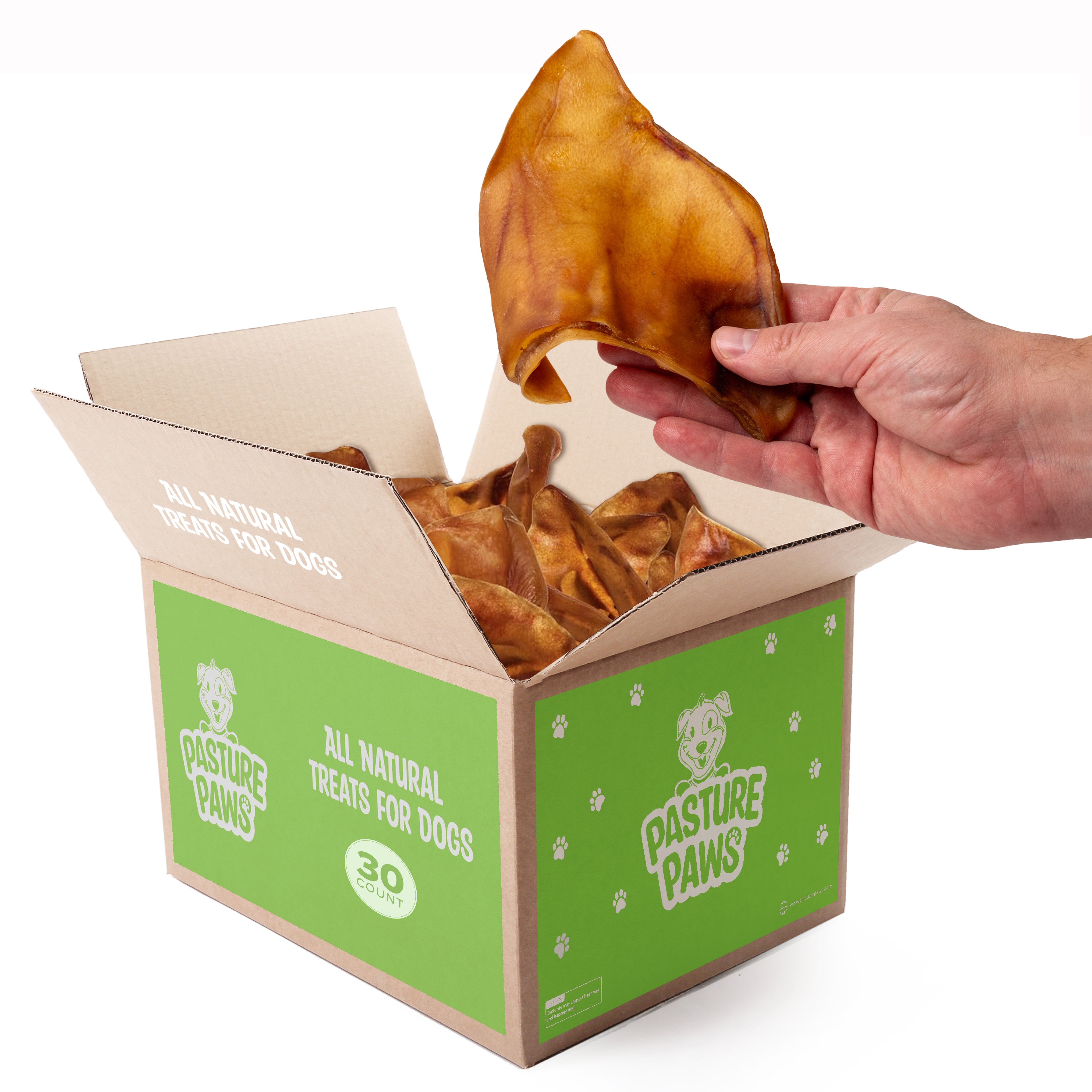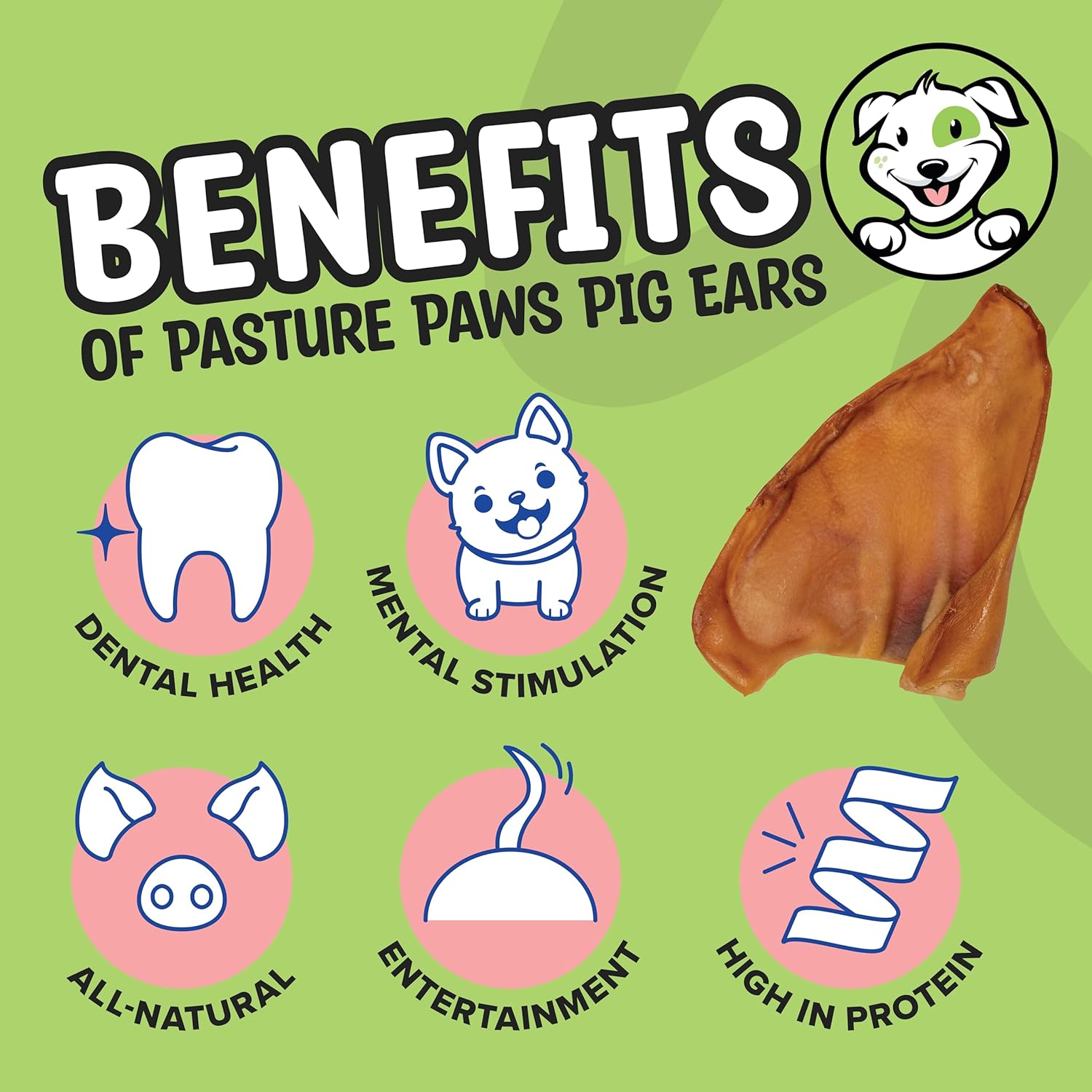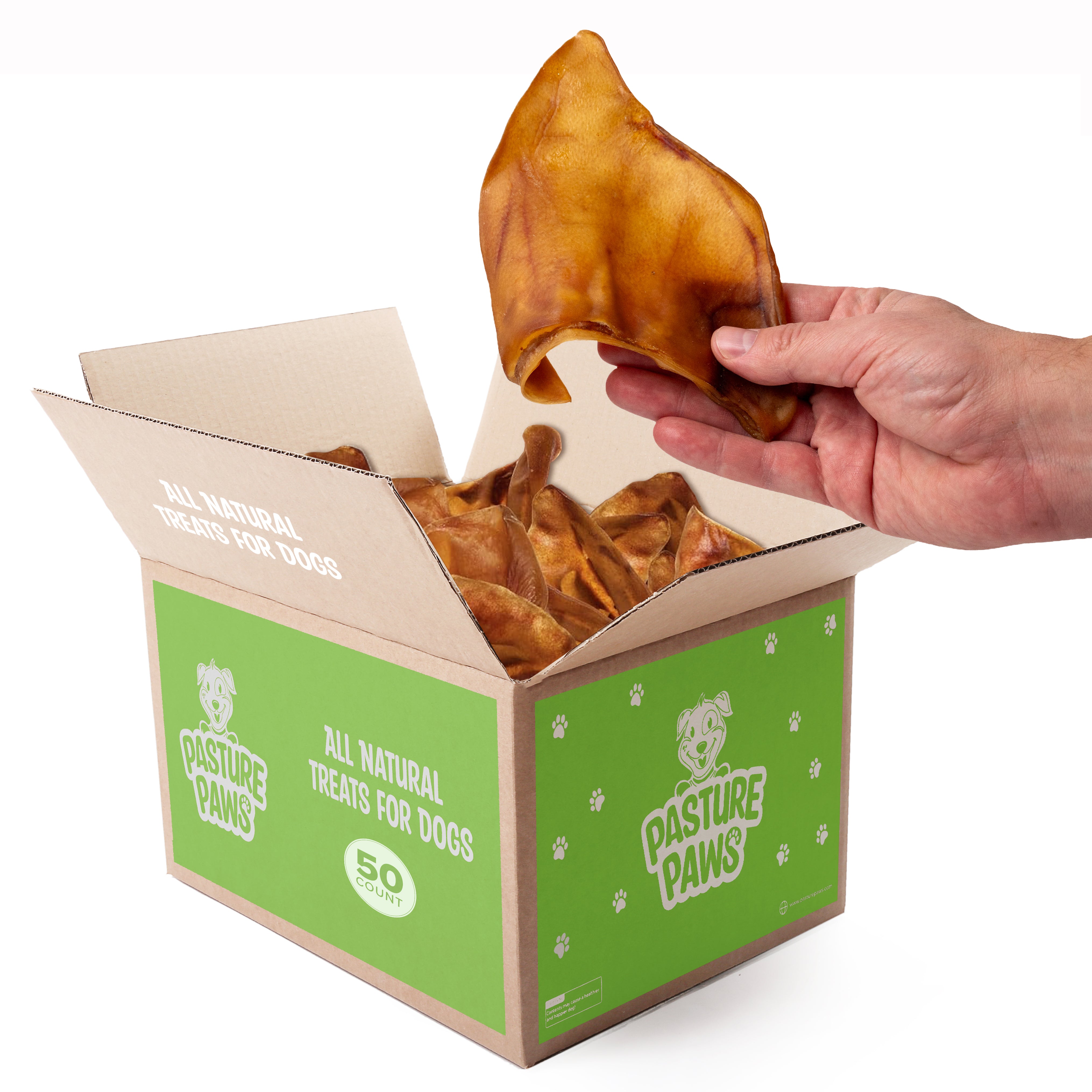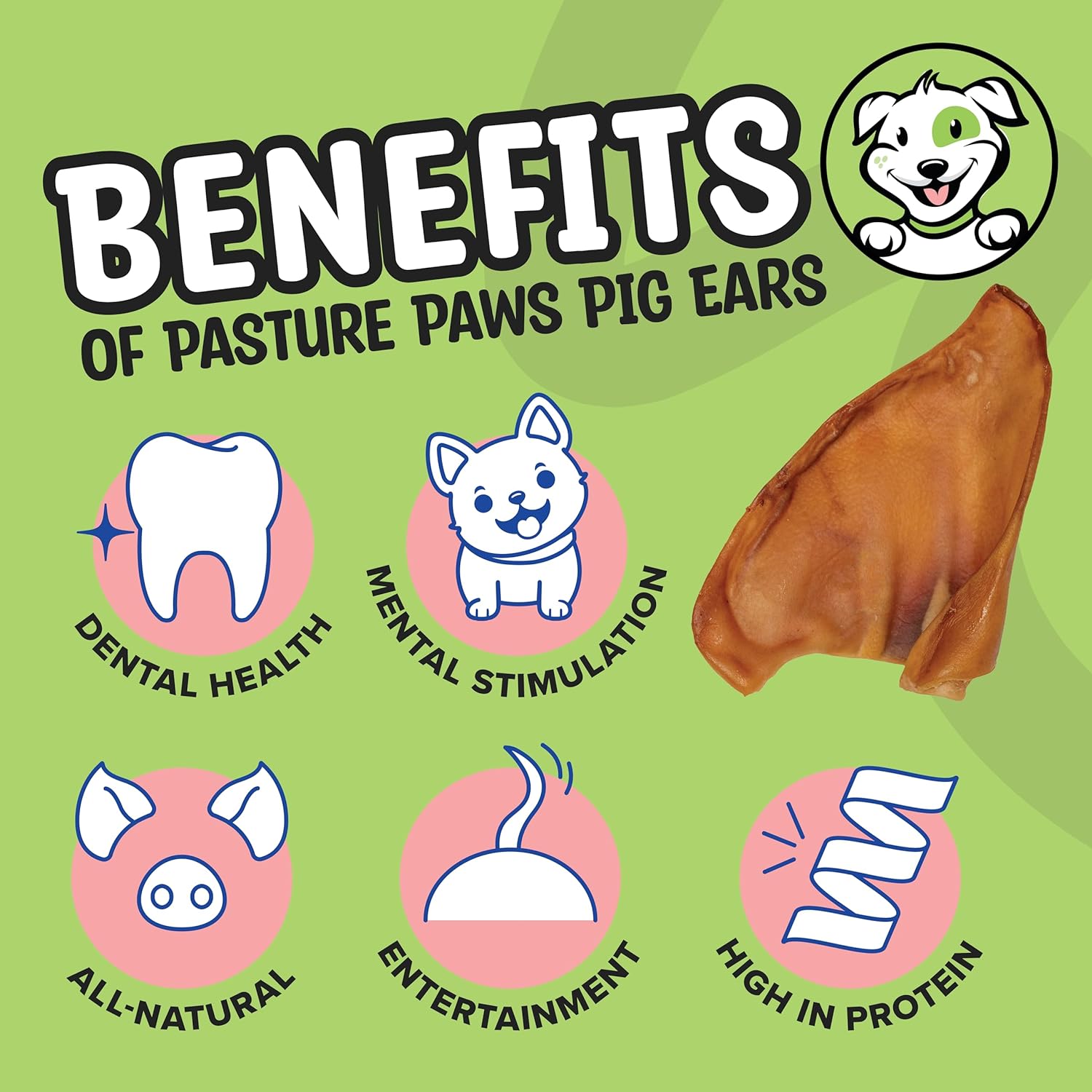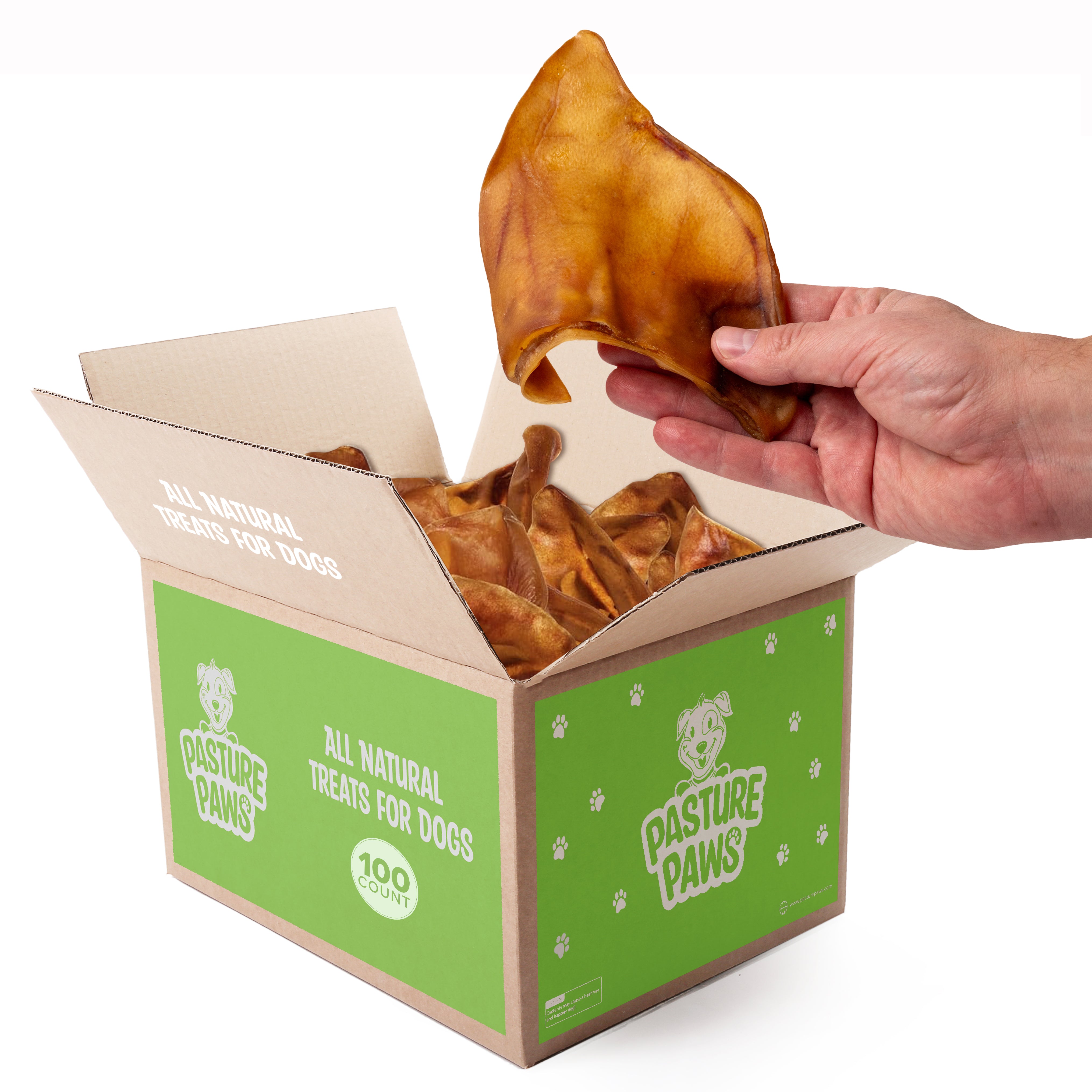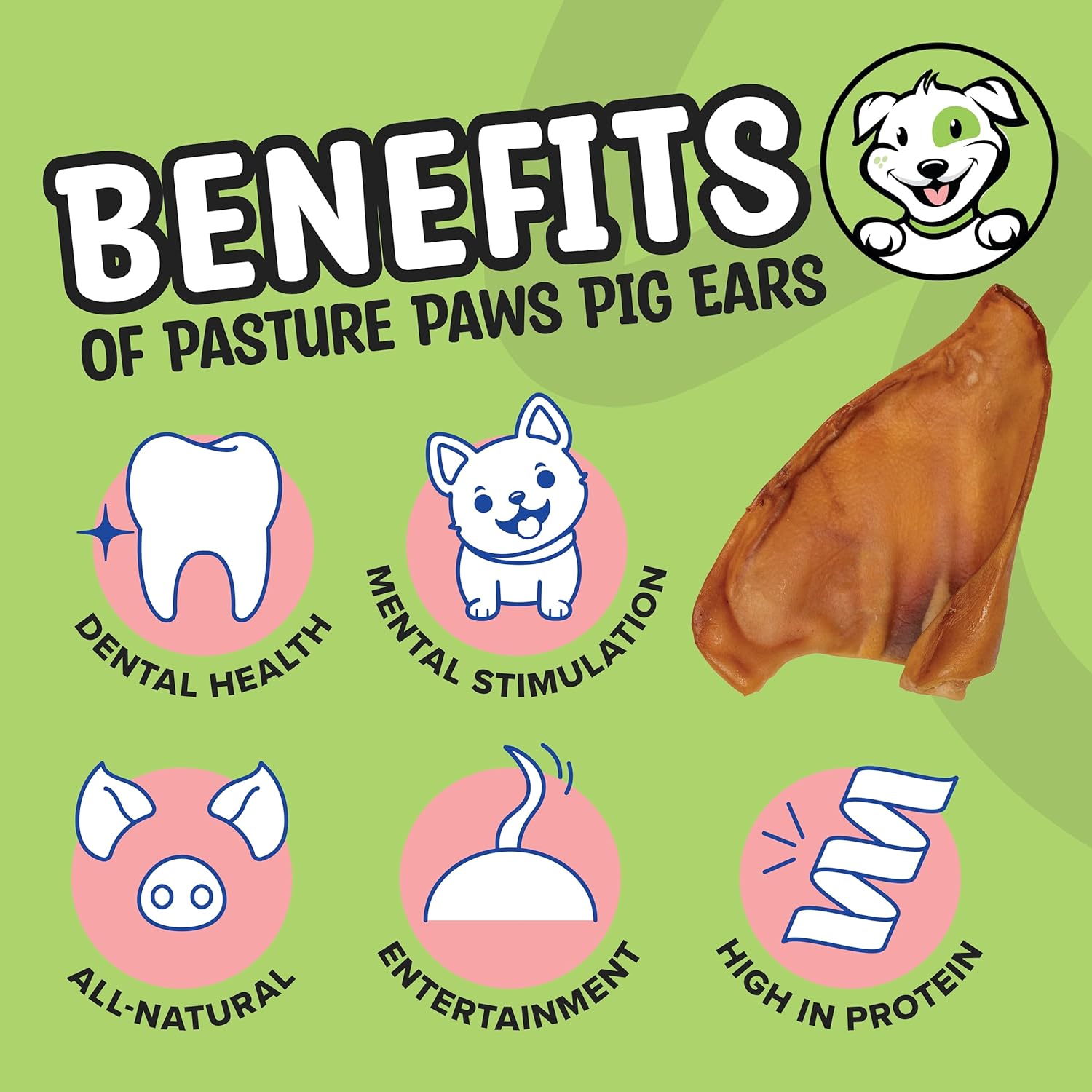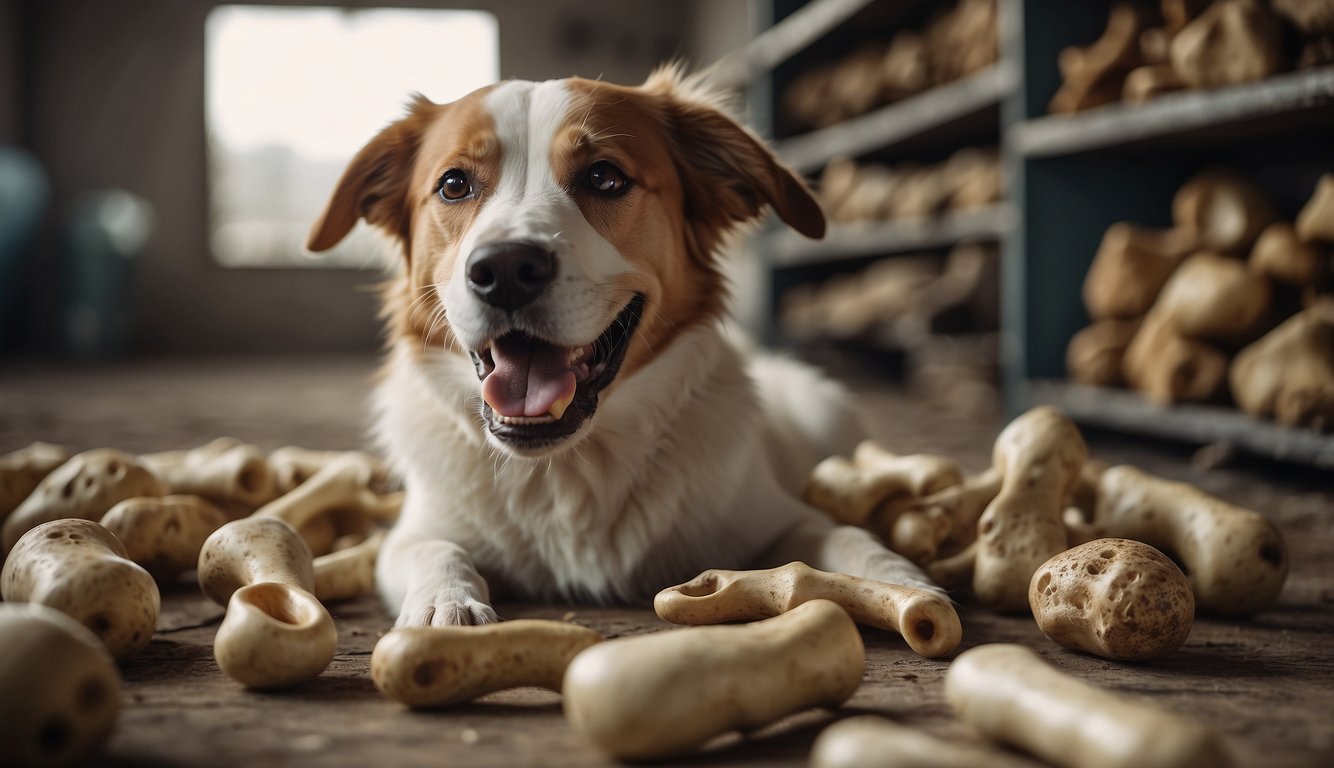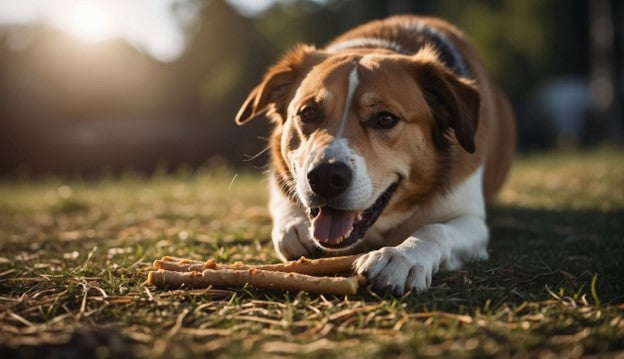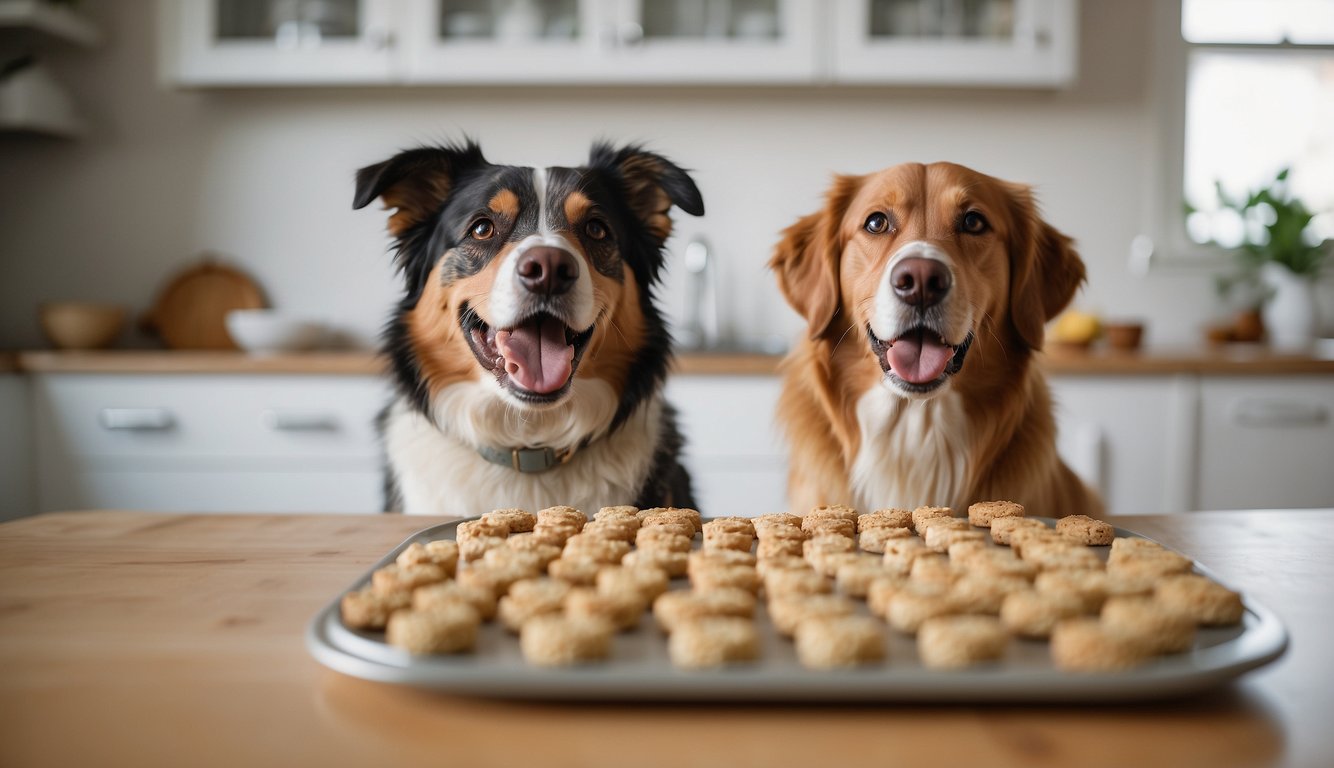Are you curious if your furry friend can safely chew on cow hooves? As a responsible pet owner, you want treats that are enjoyable and safe. Can dog eat cow hooves without any issues?
Cow hooves are natural, long-lasting chews that satisfy your dog's urge to chew. Made of keratin, the same material as human nails, they aren't a substitute for a balanced diet and should only be given as a treat.
While cow hooves can reduce boredom and promote dental health, there are risks. This article explores the pros and cons, helping you decide if cow hooves are a suitable treat for your dog. Visit Pasture Paws for more insights on safe dog treats.
Understanding Cow Hooves for Dog Treats

When it comes to dog treats, cow hooves are a popular option. They are long-lasting, have a natural texture that dogs enjoy, and can help reduce boredom and destructive behavior. However, before giving your dog cow hooves, it's important to understand what they are made of and how they can benefit your furry friend.
Composition and Nutritional Profile
Cow hooves are made from keratin, a tough protein found in hair, nails, and hooves. As a result, they are low in nutritional value and difficult for dogs to digest. However, cow hooves do contain some minerals, including calcium, which can be beneficial for your dog's health.
The Appeal of Cow Hooves for Canine Chewing
Despite their low nutritional value, cow hooves are a popular treat for dogs due to their long-lasting nature and natural texture. Chewing on cow hooves can help massage your dog's gums and reduce plaque buildup. Additionally, the act of chewing can help relieve anxiety and stress in dogs, making them a great option for dogs who are prone to destructive behavior.
When selecting cow hooves for your dog, it's important to choose high-quality products that are free from harmful chemicals and additives. Additionally, it's important to supervise your dog while they are chewing on cow hooves to prevent any potential choking hazards or injuries.
In conclusion, cow hooves can be a safe and enjoyable treat for your dog when given in moderation and under proper supervision. While they may not be the most nutritious option, they can provide a long-lasting and satisfying chewing experience for your furry friend.
Potential Risks of Cow Hooves

If you're considering giving your dog cow hooves to chew on, it's important to be aware of the potential risks associated with this treat. Here are some of the dangers you should keep in mind:
Choking and Blockage Dangers
Cow hooves can pose a serious choking hazard for dogs, especially if they are not properly supervised while chewing. Additionally, if a dog swallows a large piece of a cow hoof, it can become lodged in their esophagus or digestive tract, causing a potentially life-threatening blockage. If you notice your dog struggling to breathe, vomiting, or experiencing abdominal pain after eating a cow hoof, seek veterinary attention immediately.
Dental Concerns and Other Injuries
While cow hooves can help keep your dog's teeth clean and healthy, they can also cause dental damage if your dog chews too aggressively. The hard texture of cow hooves can lead to fractures, chips, or other injuries to your dog's teeth. Additionally, cow hooves can splinter or break off into sharp pieces, which can cause cuts or puncture wounds in your dog's mouth or digestive tract. In some cases, surgery may be required to remove these pieces and prevent further damage.
Contamination and Chemical Hazards
Another potential risk of cow hooves is contamination or exposure to harmful chemicals. Cow hooves may be treated with chemicals during processing or cleaning, which can be toxic if ingested by your dog. Additionally, cow hooves may become contaminated with bacteria or other harmful substances if they are not properly stored or handled. To minimize the risk of contamination or chemical exposure, it's important to choose high-quality cow hooves from a reputable source and supervise your dog while they are chewing.
In summary, while cow hooves can be a tasty and long-lasting treat for dogs, they do come with potential risks. By being aware of these hazards and taking appropriate precautions, you can help keep your dog safe and healthy while enjoying this chew.
Cow Hooves: Health Benefits and Nutritional Advantages
Cow hooves are a popular dog chew treat that can provide some health benefits and nutritional advantages. Here are some of the benefits that cow hooves can offer to your furry friend.
Dental Health and Plaque Control
Cow hooves can help promote dental health in dogs. Chewing on cow hooves can help remove plaque and tartar buildup from your dog's teeth, which can prevent dental problems such as gum disease and tooth decay. The Veterinary Oral Health Council (VOHC) has approved cow hooves as a dental chew for dogs, which means that they have been found to be effective in reducing plaque and tartar buildup.
Protein and Nutrient Supply
Cow hooves are also a good source of protein and other nutrients that dogs need to stay healthy. They have a high protein content, which is essential for building and repairing muscles, bones, and other tissues in the body. Cow hooves also contain vitamins and minerals that are important for your dog's overall health, such as calcium, phosphorus, and zinc.
However, it is important to note that cow hooves should not be the sole source of protein for your dog. They should be given as a treat in addition to a balanced and complete diet. Also, cow hooves are not a good source of vitamins and minerals in general, so it is important to make sure your dog's diet is well-balanced.
In conclusion, cow hooves can provide some health benefits and nutritional advantages for your dog. They can help promote dental health and provide a good source of protein and other nutrients. However, it is important to give them in moderation and as part of a well-balanced diet.
Natural Cow Hooves for Dogs, Is it Safe Alternatives and Substitutes?

If you are concerned about the safety of cow hooves for your dog, there are many other chewable options available. Here are some recommended alternatives that are safe and of good quality.
Recommended Chewable Options
Dental chews are a great option for dogs who love to chew but need something safer than cow hooves. These chews are designed to clean teeth and freshen breath, while also providing your dog with a satisfying chew. Look for dental chews that are made with natural ingredients and are free from artificial colors and flavors.
Bones are another popular chew option for dogs. However, it is important to choose the right type of bone. Raw bones, such as beef or chicken bones, can splinter and cause serious health problems if ingested. Instead, opt for cooked bones that are large enough for your dog to chew on but not swallow whole.
Natural and Store-Bought Alternatives
If you prefer natural alternatives to cow hooves, there are many options available. For example, you can give your dog a carrot or apple to chew on. These fruits are high in fiber and are great for your dog's teeth.
Peanut butter is another great alternative to cow hooves. Simply spread a small amount of peanut butter on a chew toy or bone, and your dog will be entertained for hours. Just be sure to choose a natural peanut butter that does not contain added sugars or artificial ingredients.
If you prefer store-bought options, there are many alternatives to cow hooves available online. Look for chews that are made with natural ingredients and are free from artificial colors and flavors. Additionally, always supervise your dog while they are chewing to ensure their safety.
By choosing safe and natural alternatives to cow hooves, you can provide your dog with a satisfying chew while also keeping them healthy and happy.
Hooves Dog Treats: Consumer Considerations

When it comes to purchasing cow hooves for your dog, there are a few things you should keep in mind to ensure that you are making an informed decision. In this section, we will discuss some purchasing tips and best practices, as well as the cost-effectiveness and affordability of cow hooves.
Purchasing Tips and Best Practices
When purchasing cow hooves for your dog, it is important to consider the size and quality of the product. You want to make sure that the cow hooves are large enough for your dog to chew on without the risk of choking, but not so large that they cannot fit comfortably in your dog's mouth.
It is also important to make sure that the cow hooves are of high quality and do not contain any harmful chemicals or additives. Look for products that are made from natural ingredients and are free from preservatives, artificial colors, and flavors.
When purchasing cow hooves, it is recommended that you buy them in bulk to save money. Buying in bulk can be especially cost-effective if you have multiple dogs or if you plan to give cow hooves as gifts to other dog owners.
Cost-Effectiveness and Affordability
Cow hooves are relatively inexpensive and can be a cost-effective way to provide your dog with a healthy and enjoyable chewing experience. The price of cow hooves can vary depending on where you buy them and how many you purchase at once.
If you are looking for affordable cow hooves, you may want to consider purchasing them online. Many online retailers offer cow hooves at a lower price than brick-and-mortar stores, and you can often find deals on bulk purchases.
Overall, cow hooves can be a great addition to your dog's diet and can provide them with hours of entertainment. By following these purchasing tips and considering the cost-effectiveness of cow hooves, you can make an informed decision that is best for both your pet and your wallet.
Conclusion
Cow hooves can be a safe and enjoyable treat for most dogs when given in moderation and with supervision. They provide entertainment and dental benefits, but also pose risks. Choking is a concern, especially for aggressive chewers, so it's crucial to supervise your dog closely and remove small pieces promptly. Additionally, aggressive chewing can lead to mouth injuries or tooth fractures. If you notice any discomfort, remove the hoof and consult your vet promptly.
When choosing cow hooves for your dog, opt for high-quality products that are thoroughly cleaned, cooked, and dried. Ensure they are made from natural ingredients without additives. Can dog eat cow hooves safely? For more insights on whether cow hooves are suitable for your dog. Visit Pasture Paws for a range of healthy dog treat options.
Frequently Asked Questions
Are cow hooves digestible for dogs?
Cow hooves are made of keratin, which is a protein that is hard to digest. While dogs are able to break down some of the keratin, they are not able to digest it completely. This means that most of the keratin in cow hooves will pass through your dog's digestive system without being absorbed. However, cow hooves are still a safe and popular chew toy for dogs.
How should cow hooves be prepared for canine consumption?
Cow hooves should be thoroughly cleaned and cooked before being given to your dog. The cleaning process removes any dirt or debris that may be on the hooves, while cooking makes them more digestible and less likely to splinter. It is important to note that cow hooves should never be cooked in oil or seasoned with spices, as this can be harmful to your dog.
What are the potential risks of giving my dog cow hooves to chew on?
While cow hooves are generally safe for dogs to chew on, there are some potential risks to be aware of. Cow hooves are hard and can break your dog's teeth if they chew too aggressively. Additionally, if your dog swallows a large piece of cow hoof, it could potentially cause an intestinal blockage. Finally, cow hooves can pose a choking hazard if they break into small pieces.
Do cow hooves have a strong odor when chewed by dogs?
Cow hooves do have a natural odor, but it is not usually strong enough to be offensive to humans. However, if your dog is a particularly enthusiastic chewer, the odor may become more noticeable. If you find the odor unpleasant, you can try giving your dog a different type of chew toy.
Can giving my dog cow hooves lead to dental issues?
Cow hooves can actually be beneficial for your dog's dental health. Chewing on hard objects like cow hooves can help to scrape away plaque and tartar from your dog's teeth, reducing the risk of dental problems like gum disease and tooth decay. However, it is important to monitor your dog while they are chewing to make sure they do not damage their teeth.
Is there a difference between feeding dogs cow hooves and water buffalo hooves?
While both cow hooves and water buffalo hooves are safe for dogs to chew on, there are some differences to be aware of. Water buffalo hooves tend to be larger and thicker than cow hooves, which makes them more durable and longer-lasting. Additionally, water buffalo hooves may have a slightly different texture and flavor than cow hooves. Ultimately, the choice between cow hooves and water buffalo hooves comes down to personal preference and availability.
